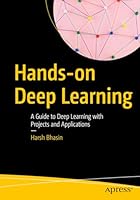
Angular 4: Pocket Primer
- Length: 462 pages
- Edition: 1
- Language: English
- Publisher: Mercury Learning and Information
- Publication Date: 2017-06-27
- ISBN-10: B073FWK8V8
- Sales Rank: #1538056 (See Top 100 Books)
As part of the best selling Pocket Primer series, this book provides an overview of the major aspects and the source code to use the latest versions of Angular 4. It has coverage of the fundamental aspects of Angular that are illustrated via numerous code samples. This Pocket Primer is primarily for self-directed learners who want to learn Angular 4 programming, and it serves as a starting point for deeper exploration of its numerous applications.
A companion disc with source code and color images is included(also available for downloading with Amazon order number by writing to the publisher at [email protected]).
Features
- Contains latest material on Angular 4, graphics/animation, mobile apps, and more
- Includes companion files with all of the source code and images from the book (also available for downloading with Amazon order number by writing to the publisher at [email protected])
- Provides coverage of the fundamental aspects of Angular4 that are illustrated via code samples
On the Companion Files!
(also available for downloading with Amazon order number by writing to the publisher at [email protected])
- Hundreds of source code samples
- All images from the text (including 4-color)
About The Author
Oswald Campesato (San Francisco, CA) specializes in D3, Java, Android, and CSS3/SVG graphics. He is the author/co-author of over twenty books including Android Pocket Primer, jQuery, CSS3, and HTML5 for Mobile and Desktop Devices and the Python Pocket Primer (Mercury Learning).
Table of Contents
Chapter 1: Quick Introduction to Angular
Chapter 2: UI Controls and User Input
Chapter 3: Graphics and Animation
Chapter 4: HTTP Requests and Routing
Chapter 5: Forms, Pipes, and Services
Chapter 6: Angular and Express
Chapter 7: Flux, Redux, GraphQL, Apollo, and Relay
Chapter 8: Angular and Mobile Apps
Chapter 9: Functional Reactive Programming
Chapter 10: Miscellaneous Topics

Arduino & MicroPython with ESP32: A Beginner's Guide to Hands-On Learning and DIY Projects - Part 1






